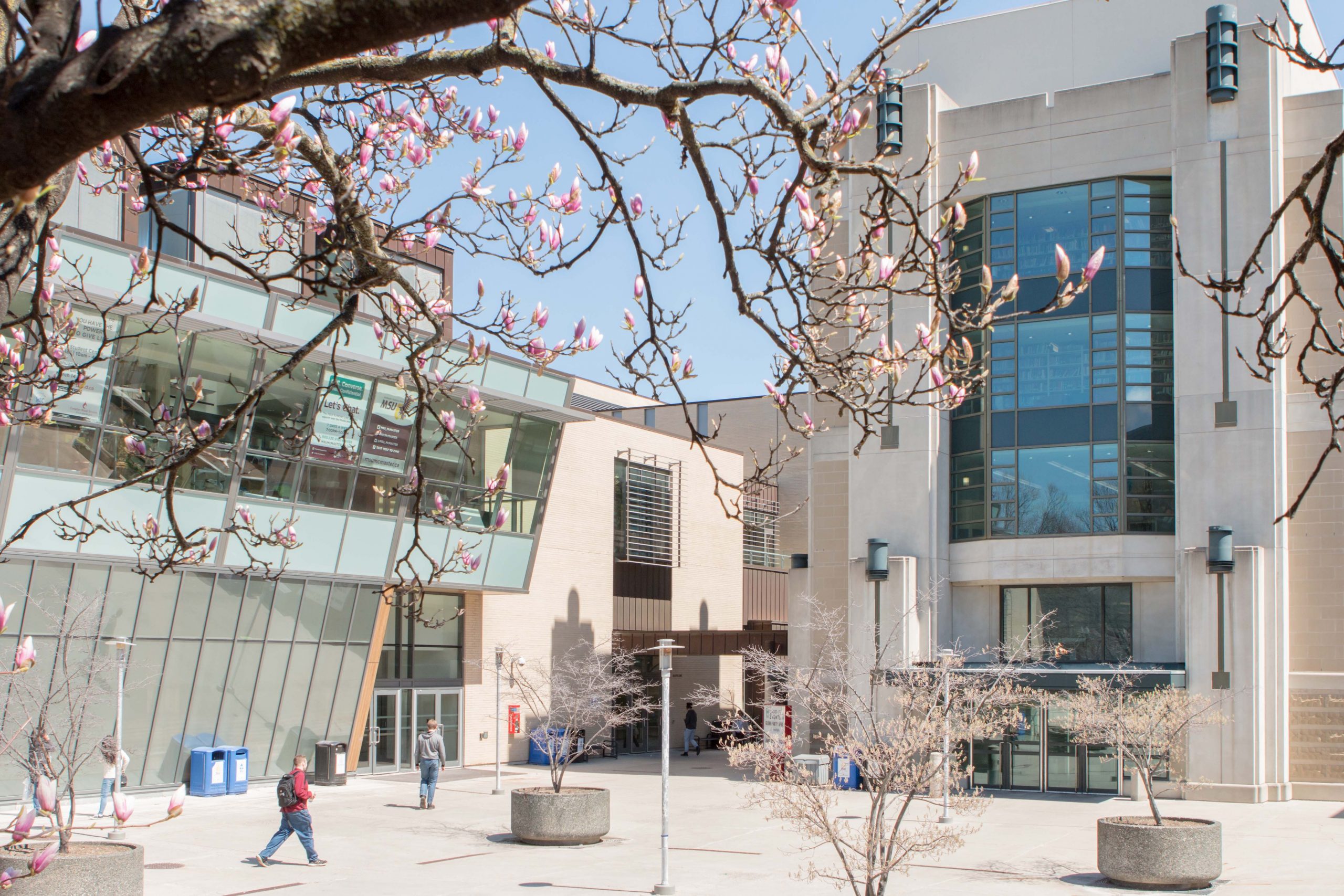Validating Innovation with Teaching and Learning Grants

As Teal McAteer sat on a bench amid the campus trees with her friend and colleague Nancy Fenton, the bud of an idea began to form. McAteer had been describing the transformative learning approach in her “Leadership Development” course at the DeGroote School of Business and believed it was having a strong impact on her students—but she wanted to support her theory with evidence.
“Did you know there are grants available?” said Fenton, an Associate Director at the Paul R. MacPherson Institute for Leadership, Innovation and Excellence in Teaching. “I think you have a story to tell here.”
McAteer’s previous work as a practitioner in relocation counselling and embedded in the world of “fallen leaders” helped her identify a gap in leadership learning. It was clear to her that many high-performing leaders needed support long before they became high-performing leaders. After becoming an Associate Professor in Human Resources & Management at the DeGroote School of Business, she was given the opportunity to design and develop her own leadership courses and became fascinated with the world of transformative learning.
She believes that for students to truly understand topics such as change, stress and conflict management, they can’t just learn about them, they have to experience them. This method fundamentally shifts the role of an instructor in the classroom, but she says the results are clear: “life-changing skill development that is not forgotten.”
McAteer began exploring opportunities to apply for grant funding to see if she could better understand the full impact of her transformative learning approach. She applied initially for the Leadership in Teaching and Learning (LTL) Fellowship and her project was accepted in 2016.
To assess the efficacy of her 12-week leadership course, McAteer analyzed data sets of students in the 2016 and 2017 course deliveries. The data sets included two reflection journals written before and after a six-week transformative journey, which helped students create a “vision of self for the future” statement and a six-week action plan for change. At the end of the journey, students provided a detailed account of their transformative learnings. The grant funding allowed her to hire researchers to do qualitative data analysis on these journals looking for patterns and themes, which required heavy duty training to keep the analysis objective.
The project also evolved over time. McAteer realized after her first year that the amount of data was enormous and that there was very little longitudinal research on transformative learning. She believed a longer-term study could provide critical insights for her and the broader teaching and learning community.
As the study ballooned in time and scope it led to more challenges as well. She experienced turnover on her research team, multiple ethics renewals and increasing quantities of relevant literatures for the multiple diagnostics that were utilized. What began as a two-year study resulted in another grant application for funding through the Priority Areas for Teaching and Learning Grant and a renewed commitment to her research to gain critical evidence about the power of transformative learning.
“Every time I’d go back for more money, the MacPherson Institute would say ‘Teal, we’re behind you—we see the importance of this research,’” says McAteer. “They could have easily said, nope not interested, this is taking too long, but they never did. That was huge.”
Her determination and persistence eventually paid off. McAteer and her team recently received confirmation that their paper outlining the positive and measurable impact of transformative learning will soon be published, and her multi-year project will conclude with the evidence she was searching for.
“The guts of the paper say we should be getting people a lot earlier to assess the dissonance between the things that they’re not developing and what they should be developing,” says McAteer. “In fact, I believe it should be started in high school, long before they get to university.”
With the study soon behind her, McAteer believes she is on the right track. Her unique and innovative approach has been validated, not only by what has she heard from students, but through the data she collected to support it.
“I am odd, I am non-traditional, I do step outside the box in what I believe is important,” she says. “But I can’t reiterate enough, if it wasn’t for the MacPherson Institute, there is no way I would be getting published.”
—-
The MacPherson Institute provides financial support to encourage scholarly investigations and the development or implementation of projects that enhance McMaster students’ educational experience. This financial support is provided through the funding of various research grants
The Small Teaching and Learning Exploration Grant, the Priority Areas of Learning and Teaching (PALAT) Grant and the Leadership in Teaching and Learning (LTL) Fellowship are currently accepting project applications for the summer 2021 term.
The call for applications is open until Monday, April 19, 2021 at 12:00PM.
Grants and Awards, Updates

